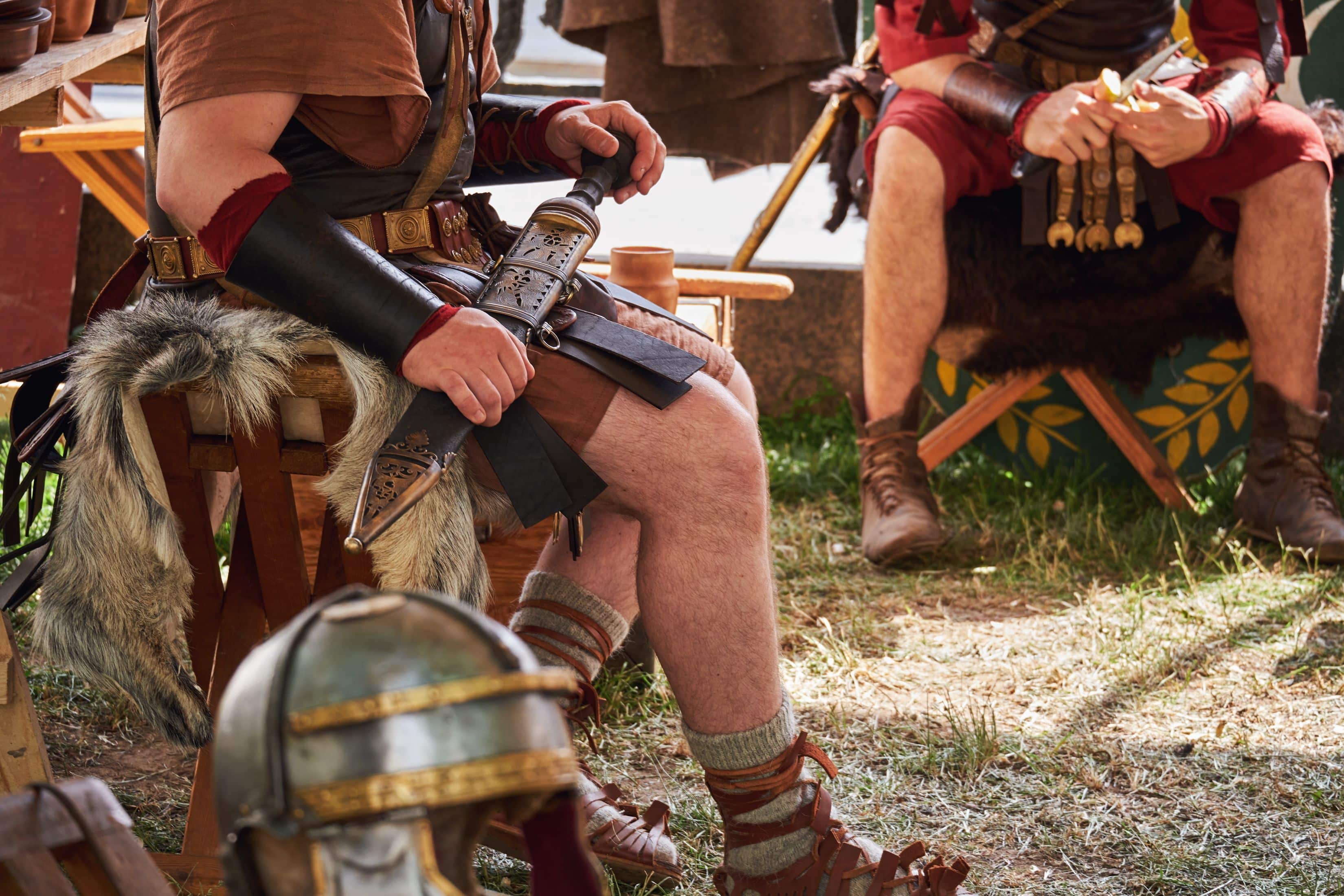In a secluded cave near the Dead Sea, Israeli researchers discovered a collection of impeccably preserved Roman swords believed to be 1,900 years old. The Israel Antiquity Authority stated that these weapons were possibly concealed by Judean rebels who had taken them from Roman opponents. Archaeologists suggest that these swords might have been hidden during the Bar Kokhba Revolt (132-135 CE), as bronze Bar Kokhba coins were also found nearby.
Key Points:
- The discovery occurred unexpectedly when researchers entered the cave to photograph ancient Hebrew words inscribed on rock formations.
- The weaponry stash included a Roman pilum (similar to a javelin), parts of sword scabbards, and four distinct swords. Three of these were recognized as Roman spatha swords, and one was a ring-pommel sword.
- Due to the cave’s dry conditions, the swords remained in excellent condition with their iron blades still enclosed in wooden scabbards.
- The Bar Kokhba Revolt, believed to be linked to the hiding of these weapons, was a significant rebellion against Roman rule in Judea from 132–135 CE, sparked by religious restrictions and plans for a Roman colony in Jerusalem.
- Dr. Eitan Klein and his team will continue to research the weapons to understand their origins and the historical events that led to their concealment.









